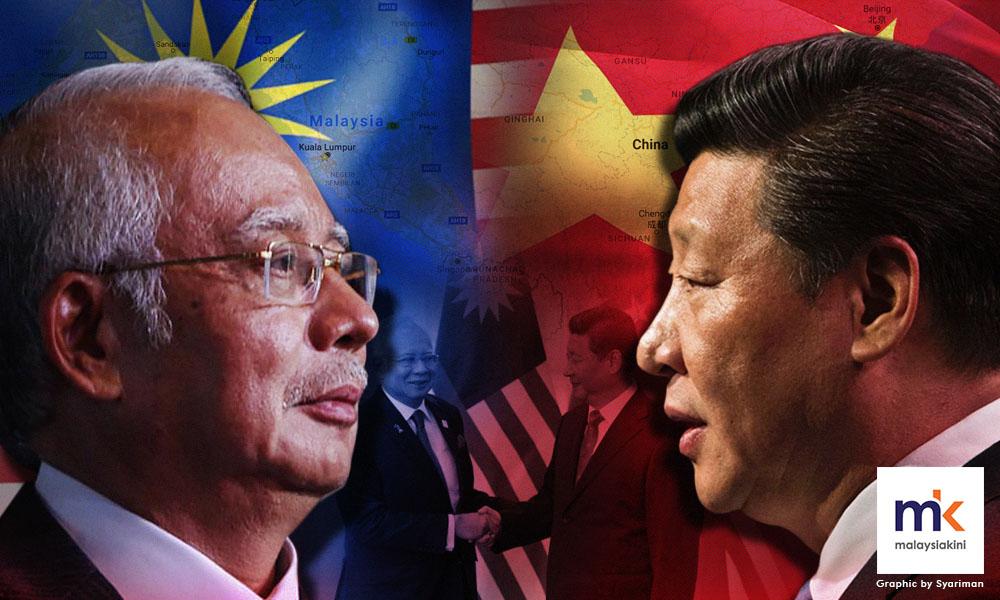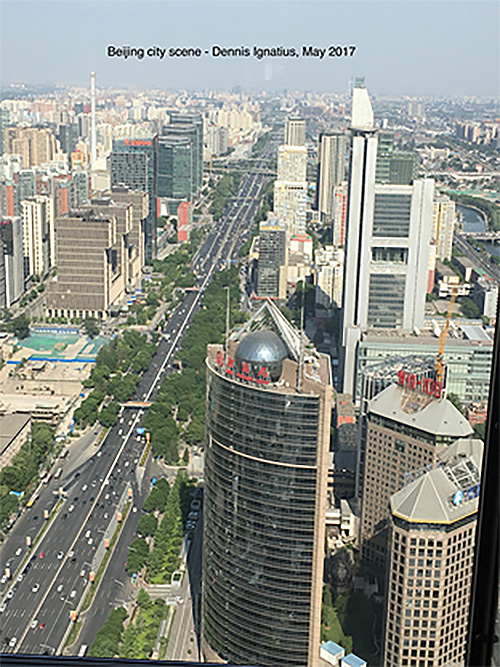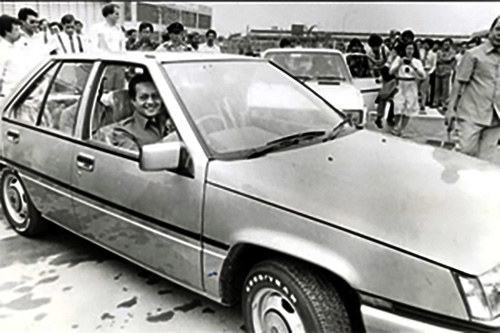
We have tended to look at China with starry-eyed fascination, mesmerised by the immense opportunities for investments, trade, and business, not to mention corrupt gain. China has become something of a fairy godmother - for every problem or need there is a Chinese loan, a Chinese project or a Chinese business deal.
Of course, China has much to offer but only the most naïve will believe that China’s largesse is without a price.
Like it or not, we are dealing with a behemoth with the resources, the ambitions and the tenacity to overwhelm us if we are not careful.
A diplomat in Beijing
I lived in Beijing from 1979 to 1981 as a diplomat and was back in China again earlier this month to attend a meeting. The pace of change in China is simply staggering.
When I first arrived in the country, China had no middle class. According to some economists, its wages were just above that of sub-Saharan Africa.
Most people lived in mud brick shacks and there were as many bicycles as there were people. Vegetables like cabbage were brought from the communes when available and dumped by the truckloads on the roadside; the smell of rotting cabbage was everywhere.
Deng Xiaoping, the paramount leader of China from 1978 till his retirement in 1989, was one of the most remarkable leaders I have ever had the privilege of meeting. He saw what many of his more ideologically inclined colleagues were too blind to see - that if a way could be found to release the industriousness, creativity and ingenuity of the Chinese people, there would be no stopping China’s rise to greatness. In my view, that was his greatest contribution to China.
And he set about changing China through the Four Modernisations policy. It was a big deal then, much the same way as One Belt One Road (OBOR) project is today.
 Less than four decades after I first arrived in Beijing, the city is not just a world-class capital city, it is the capital of the world.
Less than four decades after I first arrived in Beijing, the city is not just a world-class capital city, it is the capital of the world.
The millions of bicycles that once filled the streets of Beijing are gone, replaced by millions of cars both foreign and locally-made.
In the week that I was there for my recent meeting, China’s first locally-built aircraft carrier began sea trials while its first locally-built passenger plane took its maiden voyage.
Almost everything - airports, roads, mass transit systems, telecommunications - is new and more advanced than anything anywhere else. The old ‘hutongs’ (alleys) are all but gone, replaced by dazzling high-rise condos, shopping malls, stadiums, coffee bars and fabulously expensive restaurants filled not by expatriates but by locals.
Except for the famous historical landmarks, very little remains of the Beijing I first encountered in 1979.
Impatient to fulfil its destiny
The mindset shift is also striking. The people I talked to were confident about their future and proud of what had been accomplished. They were anxious to get the best education, learn new experiences, discover new business opportunities, seek ways to exploit new technologies, and were ready to move to the other side of the world if necessary in pursuit of their aspirations.
As a nation, there is an eagerness to be the best and the greatest, to climb the highest, go the furthest, to build the biggest, fastest and most advanced. It doesn’t take long for visitors to sense that this is a nation on the move, impatient to fulfil its manifest destiny as possibly the greatest nation in the world.
Above all else, it is the strategic thinking and planning behind almost everything that is China today that is impressive. A country like China does not rise that high that fast by happenstance but by careful planning, thoughtful implementation and dogged determination. It seems that when China settles upon a strategy, it pursues it with uncommon passion.
It would not be an exaggeration to say that never in the history of human civilisation has any nation been able to make such a technological, economic and social leap forward in such a short span of time as China.
That is the China that we must deal with and we better be up to the challenge if we are not to share the fate of lambs headed to the slaughterhouse.
It is not to suggest that China is evil or necessarily intent on subjugation; it’s just that the sheer asymmetry of its power and prowess automatically puts other nations at a huge disadvantage.
As I walked around Beijing in awe, I couldn’t help reflecting on our own nation’s journey over the last 35 years or so. In many ways, witnessing China’s exponential rise to greatness also forces us to come to terms with our own performance, our own vulnerabilities and shortcomings. It is a depressing exercise to say the least.
 During then prime minister Dr Mahathir Mohamad’s visit to China in November 1985, for example, a few Proton Saga were given to a Beijing taxi company as part of the effort to gain publicity for the recently launched Malaysian-made car. Admiring crowds gathered around the Proton wherever it was displayed, astonished that a small developing country like Malaysia could produce its own cars. It was a proud moment for those of us who were there.
During then prime minister Dr Mahathir Mohamad’s visit to China in November 1985, for example, a few Proton Saga were given to a Beijing taxi company as part of the effort to gain publicity for the recently launched Malaysian-made car. Admiring crowds gathered around the Proton wherever it was displayed, astonished that a small developing country like Malaysia could produce its own cars. It was a proud moment for those of us who were there.
Some 37 years later, here we are desperately looking to China to rescue Proton from total collapse. In 1985, China produced about 6,000 cars annually; by 2008, China’s annual production had surpassed that of the United States and Japan combined.
Time and again, we seem to have squandered the lead we had through corruption, mismanagement and misguided policies or wasted resources on hair-brained schemes. Worst of all, we never seem to learn anything from our follies because we keep repeating them.
Unproductive, self-defeating exercise
While China was taking giant strides forward with its Four Modernisations programme, we were arguing over language, race and religion. Instead of building a world-class system of education, we were politicising it and pretending that just calling our universities great would make it so. While other countries were going out of their way to attract the best minds in the world, we were driving them away with bigotry and prejudice.
While China’s leaders were experimenting with ways to release the creativity, ingenuity and industriousness of all its people, our leaders were stifling it with discriminatory programmes and self-defeating policies.
Even now, when countries like China are focused on technological innovation and strategising how to seize global leadership, we are obsessed with religious laws, what people wear or who’s sleeping with whom, never mind that all these things do absolutely nothing to improve our productivity, enhance our competitiveness or prepare us for the challenges ahead.
Of course, we have our great plans - Vision 2020 and now TN2050 - but we have neither the patience nor the determination of China to do whatever is necessary to bring it to fruition. In the end, it’s all just hype, a “syiok sendiri” exercise, and we know it.
To be sure, Malaysia has made impressive advances as well but surely it is far less than what could have been achieved when measured against our potential.
How do we face external challenges and an increasingly competitive global environment with so much internal baggage? If we cannot get our act together, if we cannot exorcise the demons within, how can we ever hope to face the dragon without?
DENNIS IGNATIUS, a former Malaysian ambassador, firmly believes that we should put our trust not in the leadership of politicians but in the sanctity of great institutions - our secular and democratic constitution, a democratically elected parliament, an independent judiciary, a free press and a government fully accountable to the people. He blogs here.- Mkini
No comments:
Post a Comment
Note: Only a member of this blog may post a comment.